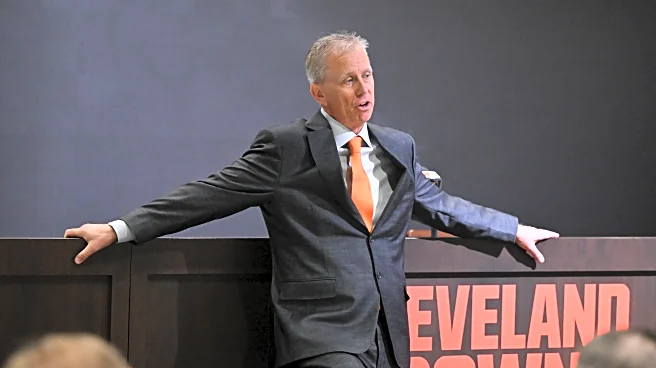What's Happening?
Hedge funds have increasingly become significant players in the U.S. Treasury market, engaging in a strategy known as the 'Treasury basis trade.' This development has sparked debate over the potential risks and benefits to the financial system. While Treasurys have traditionally been seen as safe investments, their perceived risk has increased with hedge funds' involvement. The strategy could either destabilize the financial system or assist the U.S. government in borrowing more money, depending on differing perspectives.
Why It's Important?
The involvement of hedge funds in the Treasury market could have profound implications for the U.S. economy. On one hand, it might provide the government with more borrowing capacity, supporting public spending on essential services like Medicare and infrastructure. On the other hand, the increased risk associated with hedge funds' trading strategies could lead to financial instability, affecting investors and the broader economy. The situation underscores the need for careful monitoring and regulation of financial markets.
What's Next?
The ongoing debate about hedge funds' role in the Treasury market may lead to calls for increased regulation and oversight to mitigate potential risks. Financial authorities might need to assess the impact of these trading strategies on market stability and consider policy measures to ensure the safety and security of Treasury investments. The evolving dynamics in the Treasury market will likely continue to be a focal point for policymakers and financial analysts.
Beyond the Headlines
The situation highlights the complex interplay between government borrowing needs and financial market dynamics. It raises questions about the role of hedge funds in the economy and the balance between innovation in financial strategies and systemic risk. The debate also touches on broader issues of financial regulation and the need for transparency in market operations.










